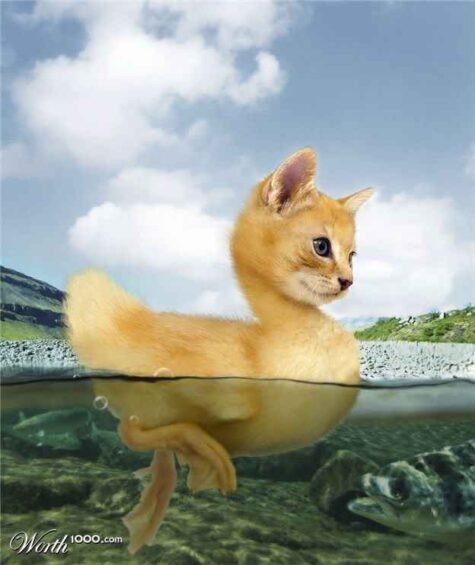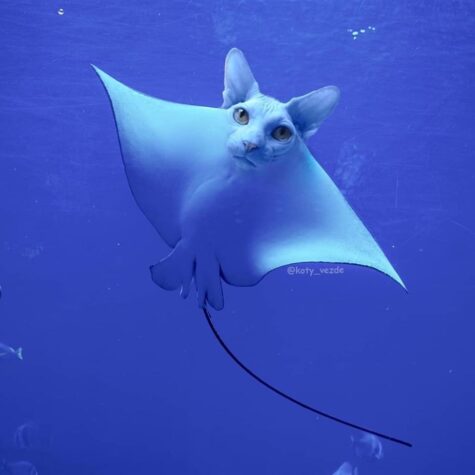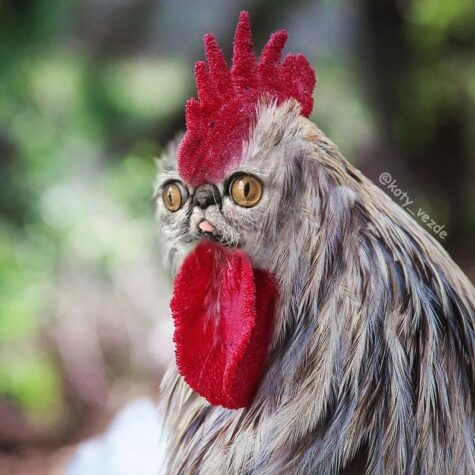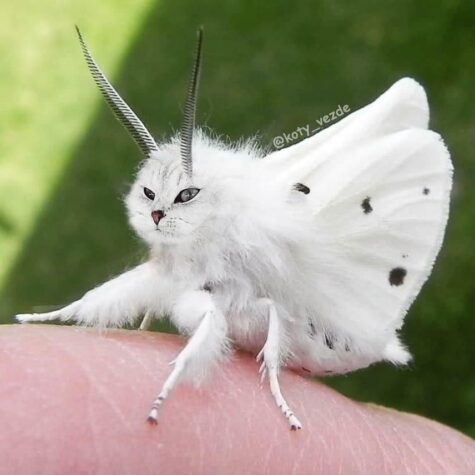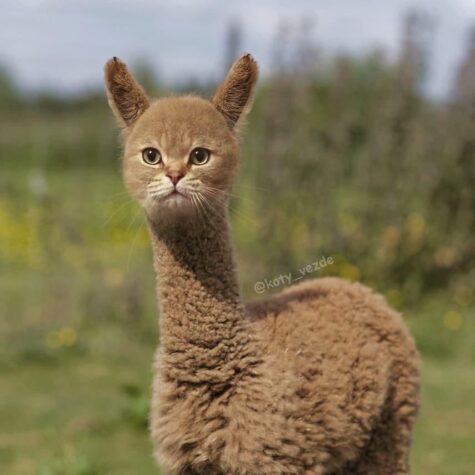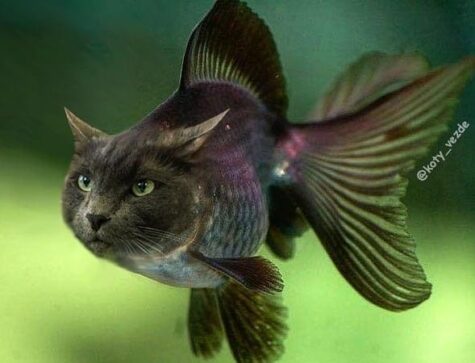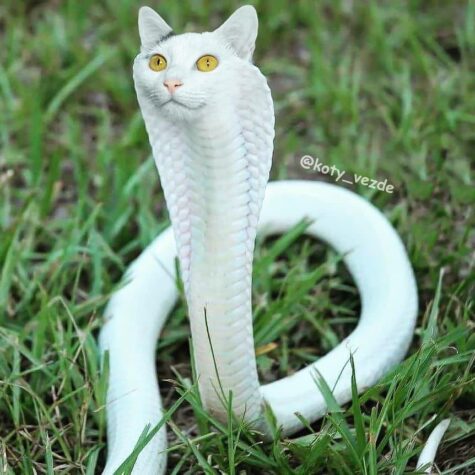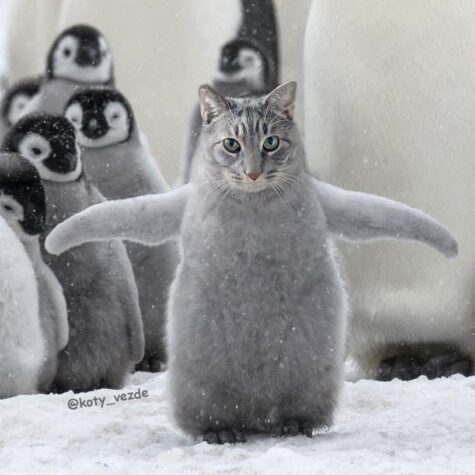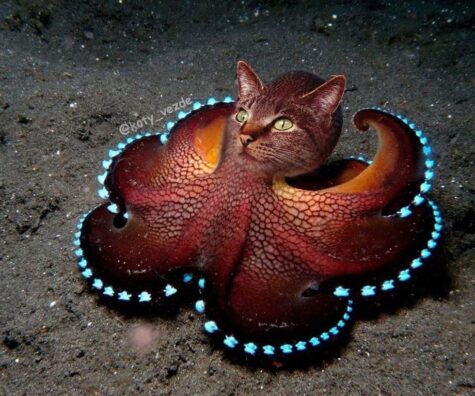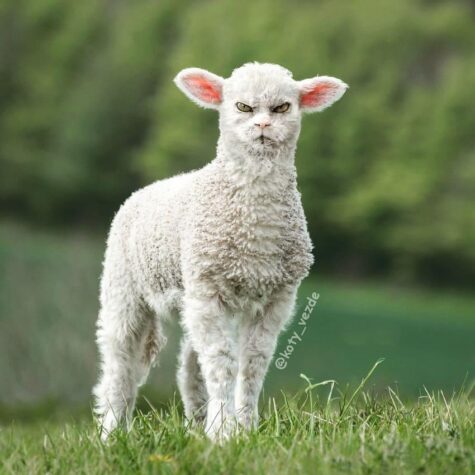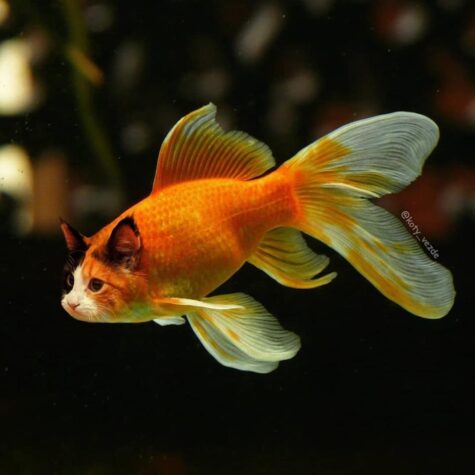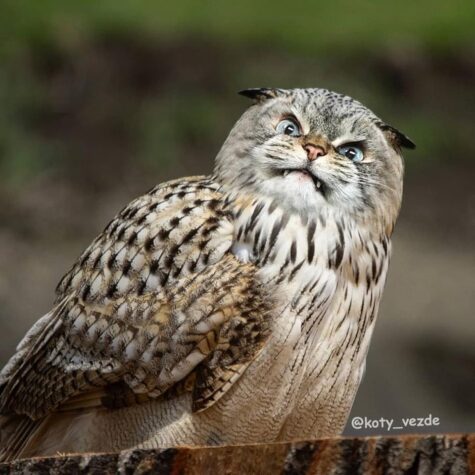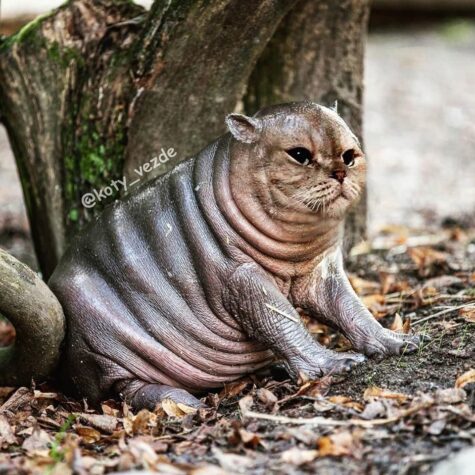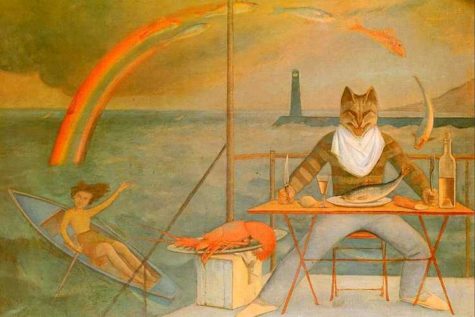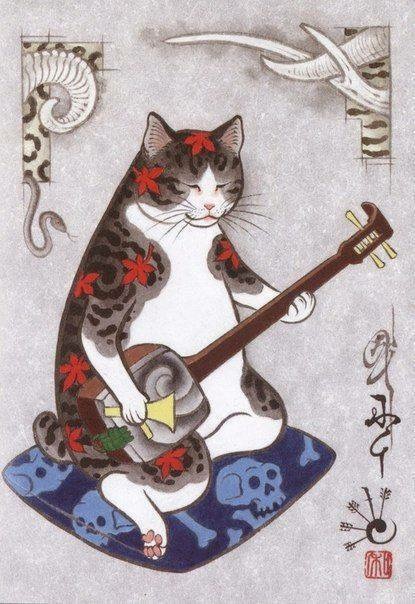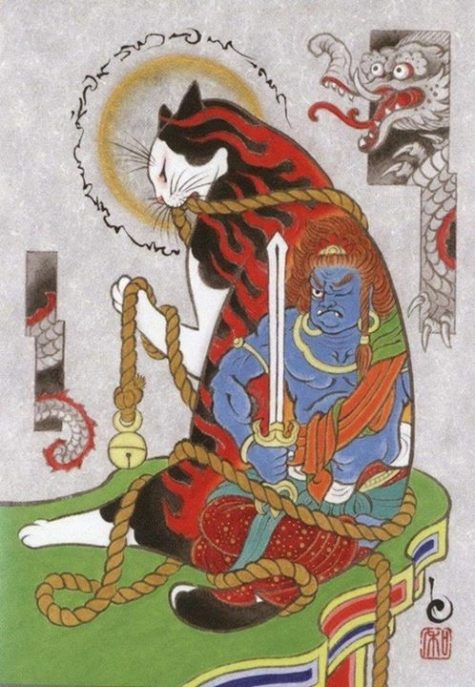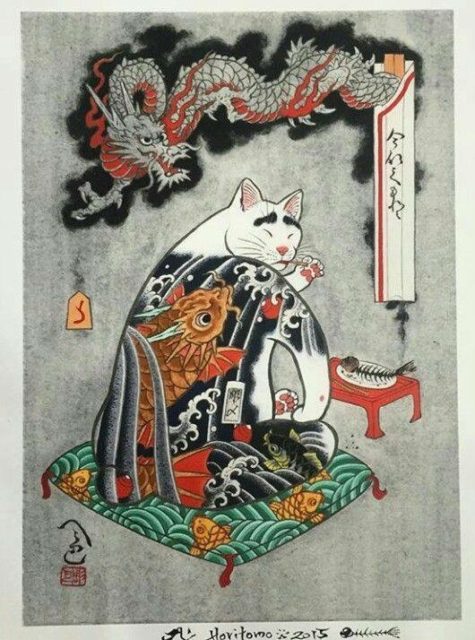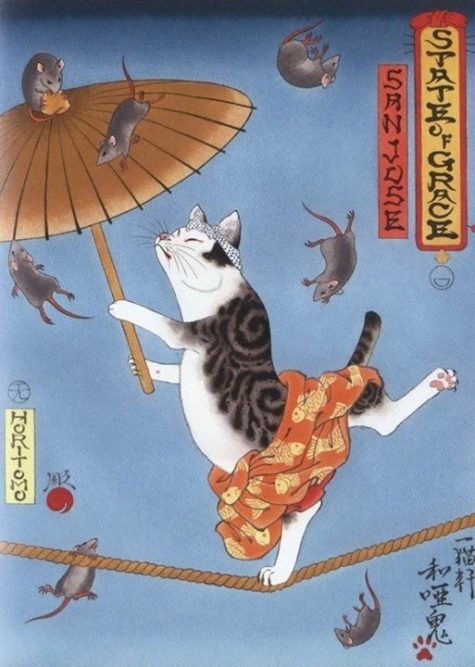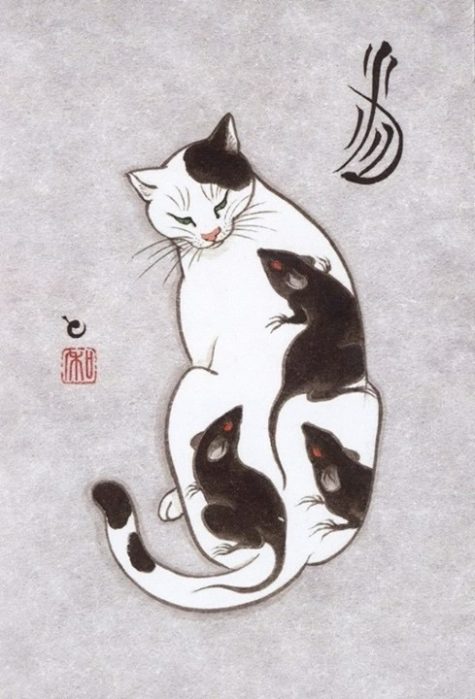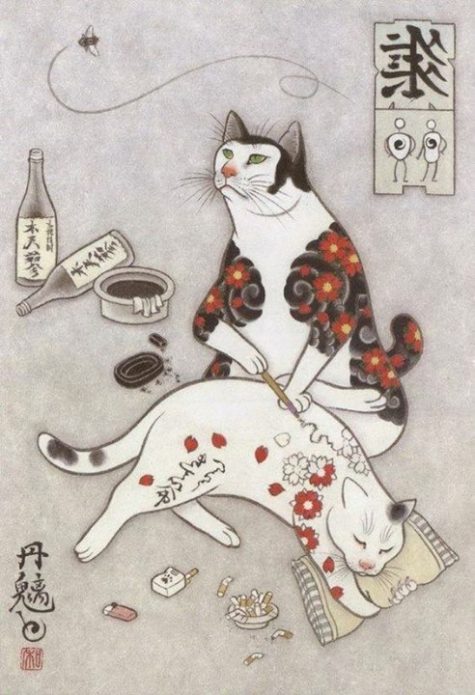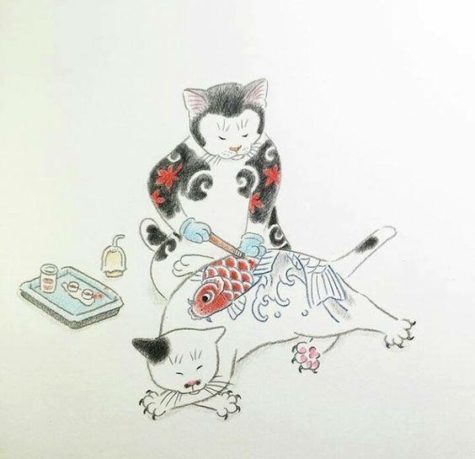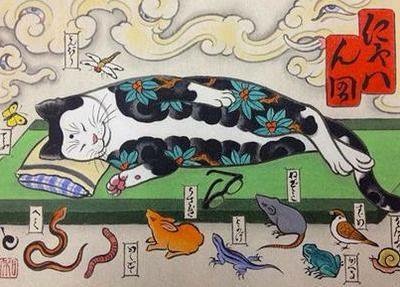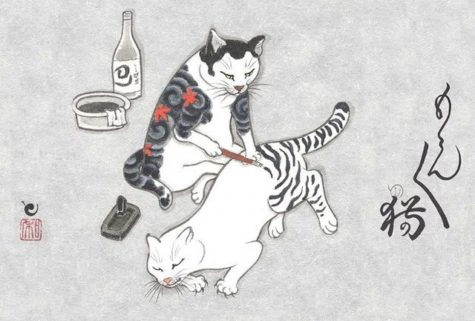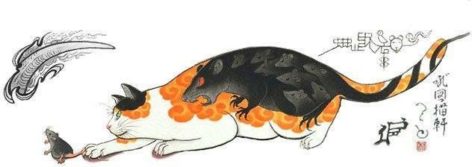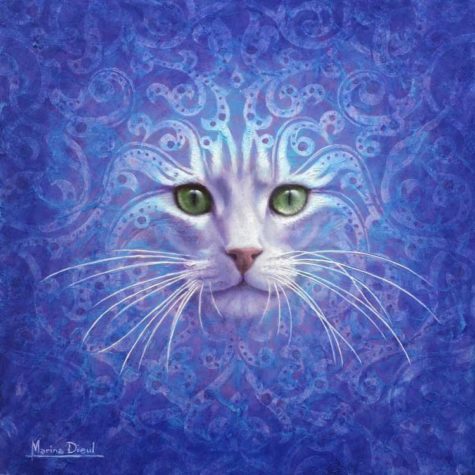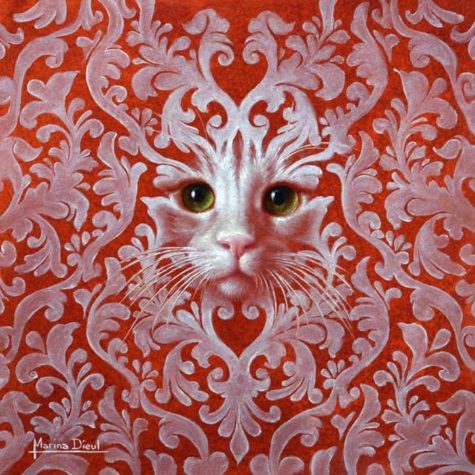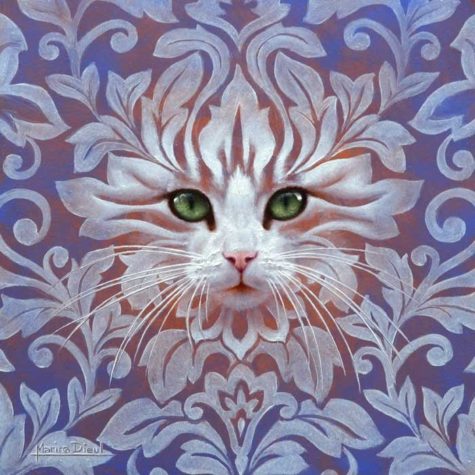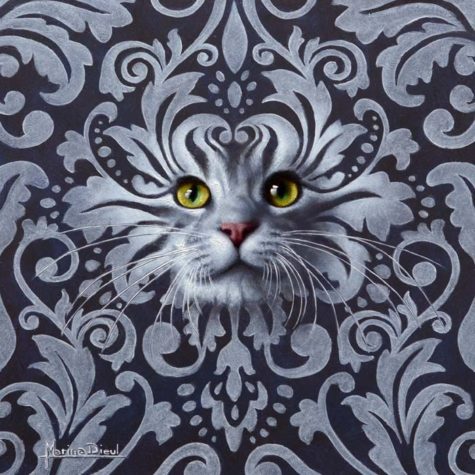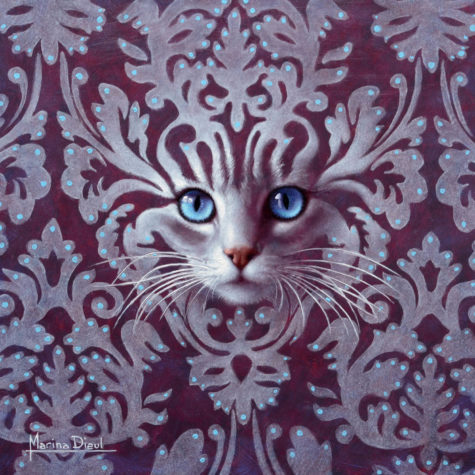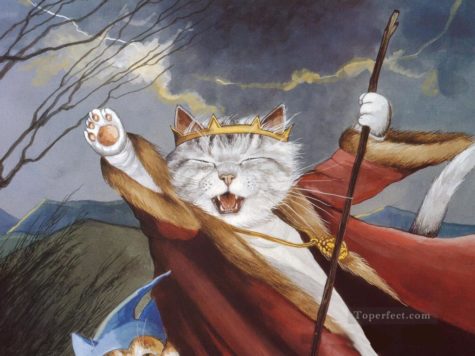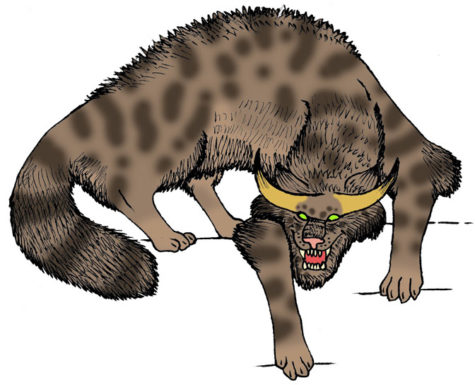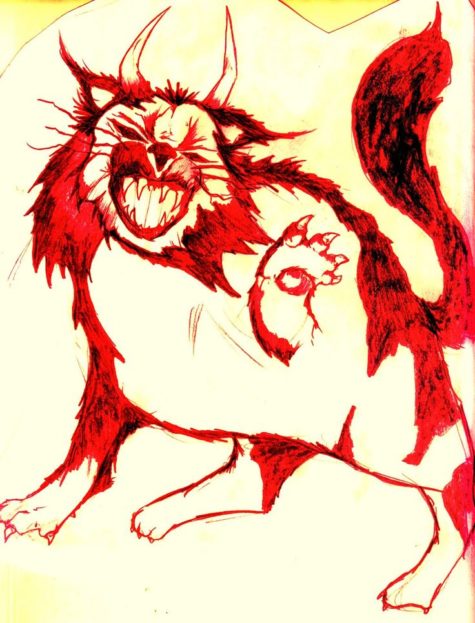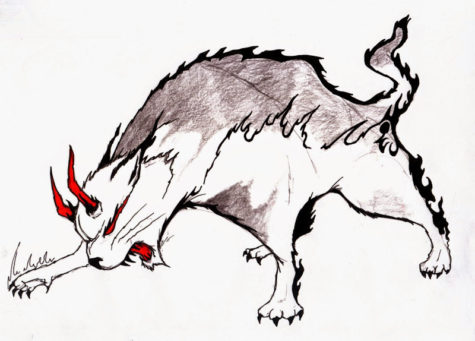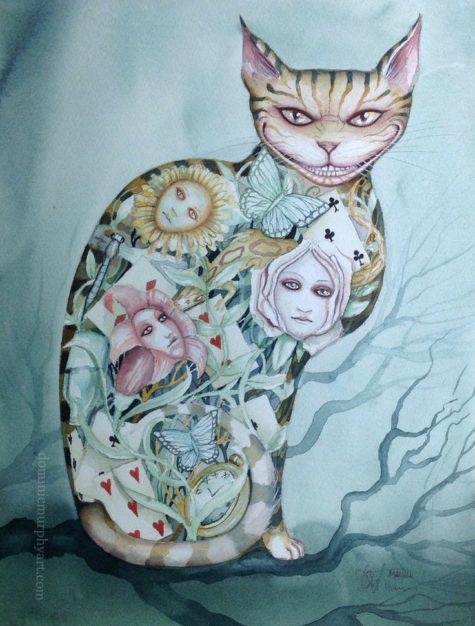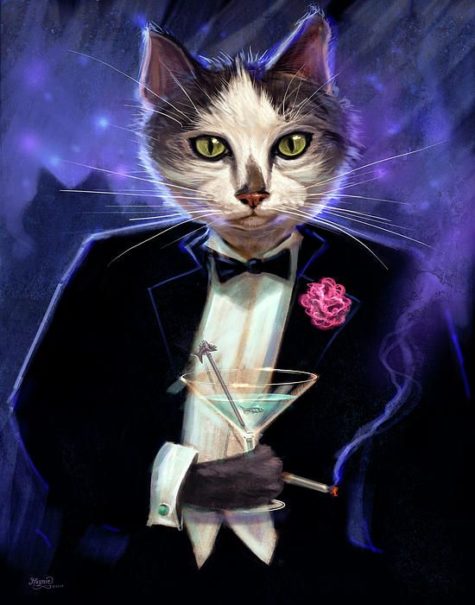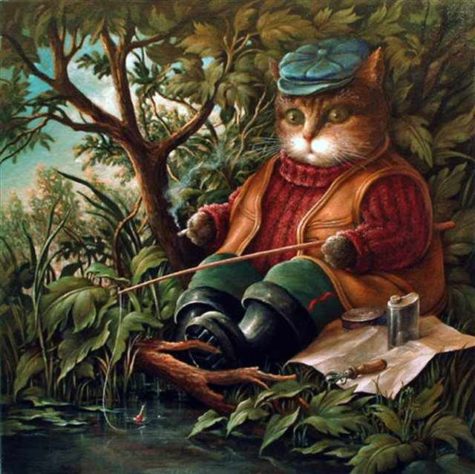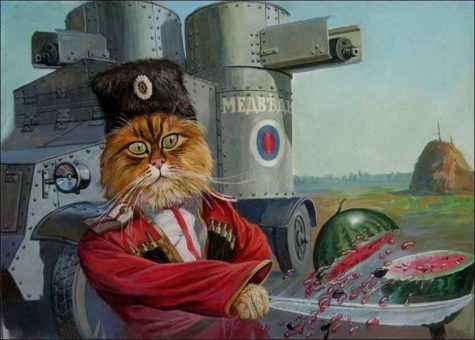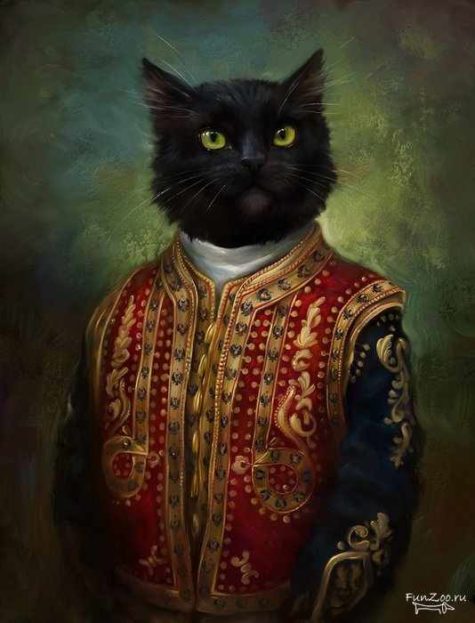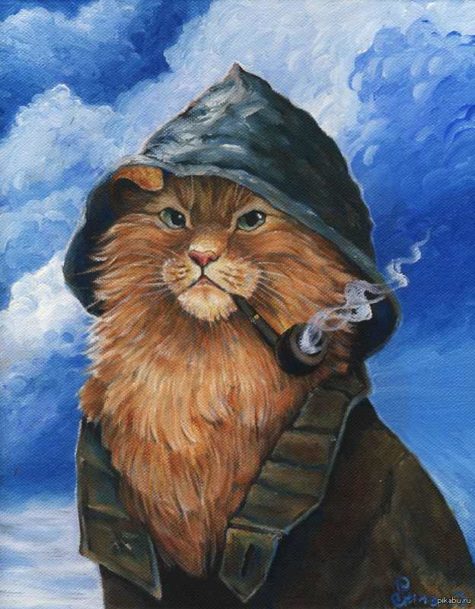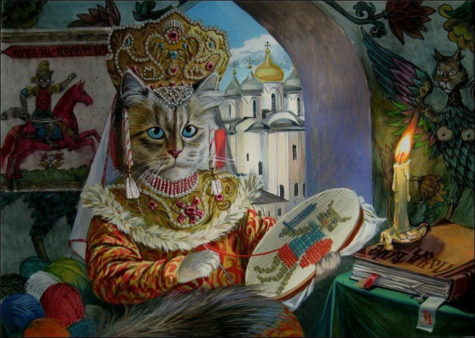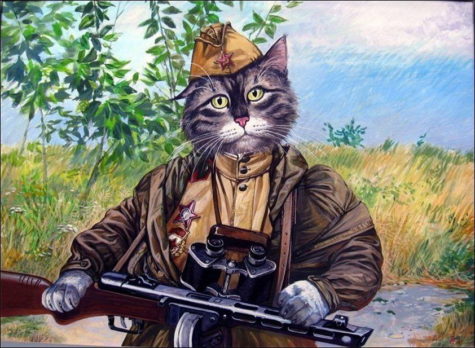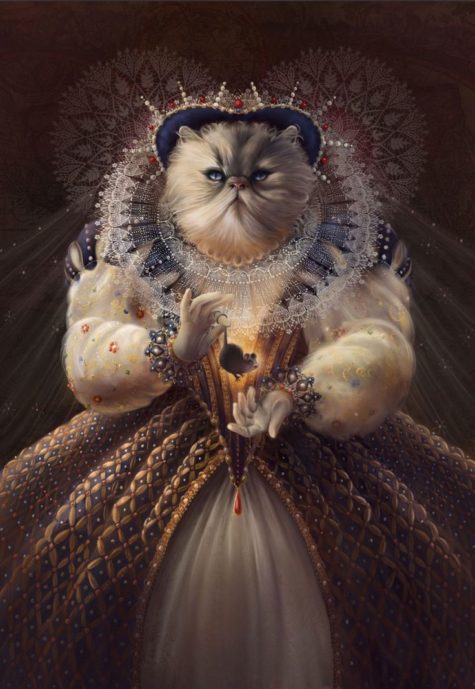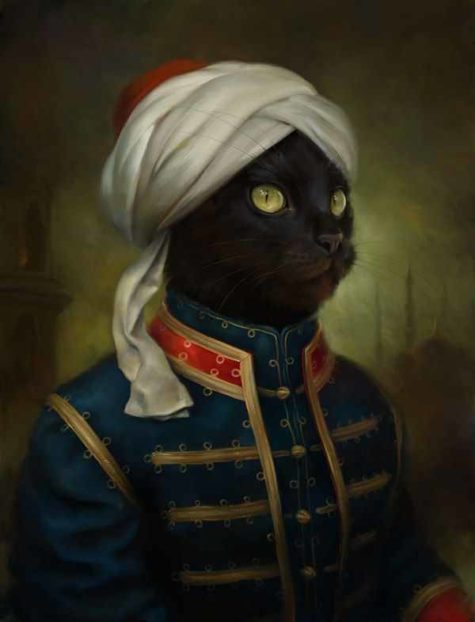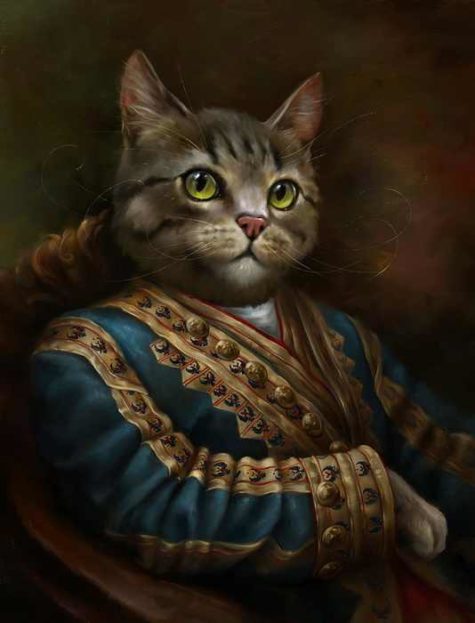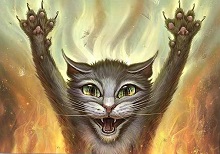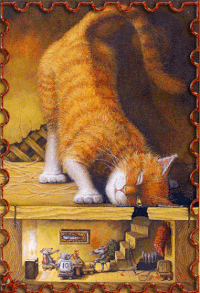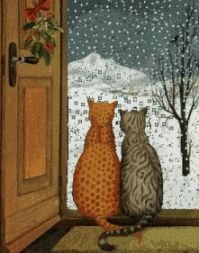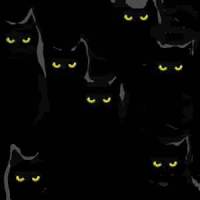Fantasy
Cats Rule
The Enchanted Watch
Once upon a time there lived a rich man who had three sons. When they grew up, he sent the eldest to travel and see the world, and three years passed before his family saw him again. The son returned, magnificently dressed, and his father was so delighted with his behavior, that he gave a great family feast in his honor.
When the rejoicing had ended, the second son begged to travel and see the world also. The father agreed willingly and sent him on his way with plenty of money, promising a similar party if the son returned as well dressed and with similar good manners. The second son conducted himself well and on his return, the celebrations were even more splendid.
The third and youngest brother was named Johnny, and he was considered foolish and lazy. He spent his days at the stove and dirtied himself with the ashes. Johnny begged to follow in his brothers’ footsteps and travel for three years.
“Go if you like, you idiot, but I don’t see what good it will do,” grumbled his father.
Johnny paid no attention to his father’s grumbling and was pleased to get permission to go. His father gave him money and was pleased to get rid of his foolish son.
Johnny had many adventures along the way. On one occasion he chanced to cross a meadow where some shepherds were just about to kill a dog. Johnny begged them to spare its life and let him have the dog, which they did. Johnny went on his way with the dog following after him.
A little further on, Johnny came upon a cat that someone was going to put to death. He implored them to spare it, which they did, and he went on his way with the dog and the cat following him. In another place, he came upon a snake about to be killed and he begged for its life to be spared. Johnny went on his way with the dog, the cat and the snake following him.
One day, the snake told Johnny to follow it. It was autumn, a time when snakes hid themselves in their holes. The snake was going in search of the king of snakes and said, “My king will scold me for being so late when everyone else is housed for the winter. I will explain how you saved my life. The king will ask what reward you would like so be sure you beg for the watch that hangs on the wall. This watch has all sorts of wonderful properties, you only need to rub it to get whatever you like.”
All happened as the snake promised and Johnny was given the watch by the king of snakes. Johnny was hungry so he decided to test the watch by asking for a meal of bread and meat and a flask of wine. No sooner had he asked than the meal appeared before him. Johnny continued on his way until evening and, tired and hungry, he touched the watch and asked for a good supper and a comfortable bed. That night he slept very well and in the morning he set off back to his father’s house.
When Johnny returned wearing the same old clothes he had set off in, his father flew into a rage and called him a fool. There was no celebration and Johnny returned to his place by the stove, dirtying himself in the ashes. After three days of sitting by the stove, Johnny was bored and thought it would be nice to see a three-story house filled with beautiful furniture and with vessels of silver and gold. Johnny rubbed the watch and there it all was.
He went to his father and said “You gave me no welcoming feast, but let me give you a feast. Come and see what is on MY plate.”
His father was astonished at the fine house and all the gold and silver and asked where all the wealth had come from. Johnny did not reply, but told his father to invite everyone for a grand banquet. All their friends and relatives were amazed at the fine house full of splendid things and the fine food (which Johnny also wished for from the watch).
After the first course Johnny asked his father to invite the king, queen and their daughter, the princess, to the feast. He rubbed the watch and wished for a fine gold and silver carriage drawn by six horses in jeweled harnesses. His father dared not ride in the carriage, but led it to the palace on foot. The king, queen and princess were surprised and impressed by the richness of the coach and at once agreed to attend Johnny’s banquet. Johnny rubbed the watch again and wished that the road to the house should be paved with fine, smooth marble. The king was astonished; he had never traveled over such a gorgeous road.
When Johnny heard the approaching carriage, he rubbed his watch and wished for a still more beautiful house, four stories high and hung with gold, silver and damask. It was filled with wonderful tables covered with exotic dishes that no king had ever eaten before. The royal family were speechless with surprise. They had never before seen such a splendid palace, nor such a high feast. At dessert the king offered Johnny the hand of the princess in marriage and they were married at once. The king and queen returned to their palace while Johnny and the princess lived in the enchanted house.
Though Johnny was not quite as foolish as his father believed, neither was a clever man. It was not long before his dullness began to bore the princess. The princess asked him how he had acquired such a beautiful palace and it was not long before she tricked the answer out of Johnny and learnt about the enchanted watch. As soon as she learnt of the watch she wanted it for herself. Johnny always slept well – the sleep of an honest man – and it was not hard for the princess to steal his magical watch.
The princess rubbed the watch and wished for a fine carriage drawn by four horses to take her to her father’s palace. Once there, she bade her own attendants follow her into the carriage. She then drove straight to the sea-side where she wished that the sea might be crossed by a bridge and that a magnificent palace might arise in the middle of the sea. No sooner had she wished it than it was done. As soon as she had entered the palace, she rubbed the watch and wished for the bridge to be gone. Then she wished for Johnny’s fine home to disappear.
Left alone and without his fine home, Johnny felt very miserable. His family and their neighbors and friends all laughed at him. He owned nothing but the cat and dog whose lives he had saved. Unable to bear living with his family, he took the cat and dog with him and traveled far away. By and by, Johnny reached a great desert where he saw some crows flying towards a mountain. One of the crows was a long way behind and when he caught up with the flock they asked why their brother crow was so late.
The late arrival told them that he had seen in the middle of the sea the most wonderful house that ever was built and had stopped to look at it. The fine house stood in the middle of the sea with no bridge to the land. On hearing this, Johnny realized where his wife was hidden. Johnny went to the shore with his dog and his cat.
When he arrived, he said to the dog and cat, “You are an excellent swimmer, and my friend the cat is very light. Cat, if you will jump on the dog’s back he will take you to the palace. Once there, dog, you must hide near the door so that the cat can sneak in and get back my watch. Then we can live comfortably again.”
The two animals crossed the sea and the dog hid near the house while the cat sneaked into it. However, the princess recognized the cat and guessed why it had come. She took the watch down to the cellar and locked it in a box. The cat wriggled its way into the cellar and the moment the princess turned her back, the cat scratched and scratched until there was a hole in the box. Taking the enchanted watch in its teeth, the cat waited quietly till the princess returned to admire the watch. The moment the princess opened the cellar door, the cat had dashed outside, carrying the watch in its teeth.
As soon as the cat reached the gates, she said to the dog “We are going to cross back to the shore – be very careful not to speak to me as I must carry the watch in my mouth for safety.”
The dog laid this to heart and said nothing, but when they approached the shore he could not help asking, “Have you got the watch?”
The cat did not answer, she was afraid she might drop the watch. As soon as they touched the shore the dog again asked “Have you got the watch?”
This time, believing them to be safely across, the cat said yes and the watch fell into the sea. Try as she might, the watch had fallen too deep for either animal to pull it out. The two animals began to accuse each other and both looked sorrowfully at the place where their treasure had fallen in. Suddenly a fish appeared near the edge of the sea. The cat immediately seized it and thought it would make a fine supper.
“I have nine little children,” cried the fish, “Spare the father of a family! Once we lived in the deep sea where there is more to eat, but someone has built a palace there and I am forced to find food closer to land.”
“Granted,” replied the cat, “but only on condition that you find our watch. Then we will ask our master to do something about the palace.”
Grateful to be spared from becoming supper, the fish dived to the bottom and retrieved the watch. The cat and dog returned to their master. Johnny rubbed the watch and wished that the palace, with the unfaithful princess and all her staff, should be swallowed up by the sea, making room for the fishes again. No sooner had he wished it than it was done. Johnny returned to his parents, and he and his watch, his cat and his dog, lived together happily to the end of their days and his parents never again called him a fool.
Found at: Moggy Cat
Oriental Art Cats
Morphogenese Cats
About the Artist:
Marina Dieul is known for her animals and figures paintings in trompe-l’oeil style, full of humor and poetry. She works in Montreal, Canada, surrounded by the many cats she fosters for a no-kill shelter.
The King of Cats ~ A British Tale
This is an old British tale about the King of Cats. It’s somewhat different from the Irish story of the King of Cats, which can be found here.
Once upon a time, a man had a calf to sell and decided to go to the November fair in Macroom. He borrowed a horse and cart from a neighbour and was to set off for the fair at about one o’clock in the morning to be sure of arriving nice an early and getting a good price. At one o’clock, he got up and looked outside. The night was too black to see anything, so he stirred the fire into life and put on a kettle for a cup of tea while he harnessed the horse.
There was a heavy mist coming down and the man was wet through by the time he had harnessed the horse and was ready for a hot cup of tea. He thought it was a foolish thing to be doing – going out on a cold, wet night to travel twenty miles in the dark, with only the lanterns on the sides of his cart to show him the way. Still, it had to be done, so he put on a thick coat and set off. The horse was just as unwilling to travel on that cold, wet night and would far rather be sleeping in its stable. Barely and hour had passed and both man and horse were wet through and miserable.
As they drew nearer to the town, the man could see the lights in the farms by the roadside, where the people were getting up for the fair – people who lived close enough to Macroom that they did not have to travel in the middle of the night. Soon there was quite a procession of people on the road with calves and cattle being driven to the fair. It was still dark and the daylight was only just coming.
The man took his place in the fair, and no one made him an offer for the calf for a long time. A few made offers of poor prices and other farmers told him that the prices were low anyway. In the end, cold and dejected and tired from lack of sleep, he accepted an offer, though the price was not a good one, rather than be left to take the calf home again which would have meant a wasted journey.
Cold, wet and hungry, he made a few purchases and then met with some friends for some bread, cheese and ale before they all set off for their homes. He was not looking forward to the long journey home, but at least a full stomach and a quaff of ale raised his spirits a little.
He let the horse go at her own pace and though the rain came down again, the man fell asleep wrapped in his greatcoat and huddled on the driver’s seat of the cart. Dozing fitfully, he barely heard the other travelers passing him, but he began to have strange dreams that could scarcely be told from reality.
As he was passing the graveyard of Inchigeela, a cat put his head through the railings and said to the man, “Tell Balgeary that Balgury is dead.” The man paid little heed to that, for he was too tired to know if it was real or just the product of his exhaustion. At last he arrived home and settled the horse in the stable with hay and water and went into the house to change out of his wet clothes.
His wife immediately began to ask about the fair – how many were there, whether he got a good price for the calf and whether he had heard any news while in town. After replying to questions, the farmer told her to be quiet a while and fetch him some tea to warm him through.
His wife fetched the tea and asked again if there was any news from town – people that had died, babies that had been born, people that had moved into or out of the area and people that had married since last time the farmer had been to town. Her husband told her he had been too wet and tired to stand around gossiping at the fair.
“Fancy going in all that way and hearing nothing at all,” complained his wife, “And not getting a good price for the calf either. You might as well have stayed at home for all the good that you get out of a fair.”
Finally, the man remembered the strange thing at Inchigeela and said “The only news, if you can call it that and not a dream, was when I was passing the graveyard of Inchigeela. A cat stuck his head out of the railings and said ‘tell Balgeary that Balguny is dead’.”
At that, their cat, sitting before the fine, jumped up and glared at the man. “The Devil fire you!” said the cat, “why didn’t you tell me before? I’ll be late for the funeral. It does no good for the heir to be late.”
And with that, the cat leapt through the cracked open window and was gone like the wind. From that day on, the farmer and his wife saw no sign of him.
Horned Demon Cat
Found in Cats of Magic, Mythology, and Mystery, this is reputed to be a true story of the Horned Demon Cat of World War II.
It could have been a scene enacted from Dante’s ‘Inferno’ – even the clouds seemed to be wreathed in flames as torrent after torrent of plummeting German bombs screamed through the darkened skies over south London, and danced a fiery tarantella of death upon its shuddering streets, like a flurry of shrieking souls in everlasting torment. And in the midst of this panorama of pandemonium was Howard Leland – one of many volunteers with the ARP (Air Raid Precautions) who had been boldly defying the deadly rain of missiles throughout that fearful evening in October 1943 in a desperate bid to minimize its malevolent effects. Little did Leland realize, however, that he would soon encounter something infinitely more sinister, and malign, than anything conjured forth by the wartime enemy.
As the ground reverberated from the intensity of yet another mighty explosion nearby, Leland ran into a deserted house to take shelter, until the immediate danger had passed. The building’s interior was pitch-black, but with the aid of his torch he located a staircase, and rested on the bottom step for a while, waiting for this latest airborne assault to end.
Suddenly, a cold shadow of fear swept across him, for as he sat there he realised – indefinably but undeniably – that he was no longer alone in that house. Something – not someone – else was here too, close by, and watching him. Unbidden, his eyes gazed upwards, to the top of the stairs, and the feeling intensified. Surely there, concealed amid the stygian gloom, was the source of his fear – and now he would reveal its identity.
Leland switched on his torch again, directing its penetrating beam onto the topmost stair – and beheld a hellish sight that transfixed him with fear, expelling from his mind all of that evening’s previous horrors in an instant. Crouched upon the stair was a huge hairy beast with tabby-like stripes of black and brown, clawed paws, and blazing eyes like glowed like twin infernos, mesmerizing Leland with their incandescent gaze. It would have resembled a monstrous cat – had it not been for the pair of sharp pointed horns that protruded from its skull!
For almost a minute, Leland remained motionless, held in thrall by the cold aura of palpable evil that radiated inexorably from the beast’s unblinking eyes – and then it moved! With a single colossal leap, it sprang from the stair, plunging down into the shadowy room – but before it reached the ground, it had vanished. Yet its presence had not entirely gone – for Leland could plainly hear a spine-chilling yowling cry, echoing in the empty room.
At that same instant, however, the sound of human footsteps came from the open front door – and the spell was broken. The eldritch cries ceased immediately, and through the door walked two of Leland’s ARP comrades. Their reassuringly familiar forms and voices swiftly dispersed the shroud of terror that had encompassed Leland only moments before, and encouraged him to recount his chilling experience. Neither of his friends had heard anything when entering the house, however, so he did not expect them to treat his account seriously – which is why he was so surprised when they listened silently and with grave expressions throughout his story, making no attempt to scoff or scorn his words.
When Leland had finished, his friends informed him that he was not the first person to have spied the feline monster. On the contrary, it had been seen by many different eyewitnesses over a period of several years, and the sightings were always the same – an immense horned cat with demonic eyes, squatting at the top of the stairs.
Nevertheless, in the hope that a more straightforward explanation may be forthcoming, the three men walked up the stairs and searched everywhere thoroughly for any physical evidence of the creature’s reality, but nothing was found.
Still disturbed by the memory of this grotesque entity but anxious to uncover its identity and possible significance, two days later Leland visited a renowned clairvoyant, John Pendragon, and recalled to him his encounter. After listening intently, Pendragon located the house on a large map of London, then placed a forefinger on the precise spot marking it.
At once, Pendragon’s mind was filled with a whirling vista of cats – countless furry wraiths swirling all around at the top of the deserted house’s stairs in a screeching, spitting vortex of feline fury, a mad maelstrom of undying hate. And at its very centre was something much larger, but it was not a cat – not even a horned demon cat. It was a man – haggard and despairing, with a noose in his hand, about to place it around his own neck.
After describing this vision to Leland, Pendragon asked him to make enquiries among the house’s neighbours, to discover whether any details of its history and of its previous owners corresponded with those in his vision. A week later, Leland returned, bearing some extremely interesting (and vindicating) news.
One of the house’s former inhabitants had been an ardent practitioner of the black arts, in the vain hope of improving what he had perceived to be a wretched, unfulfilled life. In accordance with one particularly grisly ritual, he had routinely slaughtered numerous cats for sacrifice upon an unholy altar. Ultimately, the balance of his mind had become totally unhinged, and he had committed suicide – hanging himself with a noose, suspended from the banister at the top of the stairs. Shortly afterwards, the great horned cat was seen there for the first time, and spectral yowling cries have often been heard since too.
Was the horned demon cat an elemental?
When Leland asked his opinion as to this monster’s precise nature, Pendragon suggested that it was probably an elemental spirit – one whose feline appearance and vitriolic hatred had been created by the restless ghosts of the departed sorcerer’s many feline victims, and which would linger indefinitely in the grim locality where they had all met their terrible deaths.
Although the vast majority of Britain’s mystery cats are unquestionably exotic non-native cats that have escaped or have been deliberately released from captivity, or are simple misidentifications of common animals, some investigators have speculated whether a few of them may in reality be paranormal (zooform) entities ‘disguised’ as big cats – as would certainly seem to have been the case with London’s horned demon cat of World War Two.
Incidentally, it should be noted here that although the original source of this case was John Pendragon’s autobiography, Pendragon (1968), which was written in collaboration with paranormal mysteries writer-investigator Brad Steiger, it only contained a fairly brief account of events. However, Steiger’s own book, Bizarre Cats (1993), included a much more detailed, greatly expanded version as related to him by Pendragon, which not only emphasized the entity’s feline nature but also incorporated other noteworthy additional information – such as the full name of the eyewitness (merely referred to by his initials in Pendragon’s book), and the hideous cat-slaying rituals performed by the man who had subsequently committed suicide in the house where the horned demon cat was later seen.
The Cactus Cat
By William T Cox, from “Fearsome Creatures of the Lumberwoods, with a Few Desert and Mountain Beasts,” published in 1910, we have this description of the Splinter Cat, (Cactifelinus Inebrius).
How many people have heard of the cactus cat? Thousands of people spend their winters in the great Southwest – the land of desert and mountain, of fruitful valleys, of flat-topped mesas, of Pueblos, Navajos, and Apaches, of sunshine, and the ruins of ancient “Cliff-dwellers.” It is doubtful, however, if one in a hundred of these people ever heard of a cactus cat, to say nothing of seeing one sporting about among the cholla and palo verde. Only the oldtimers know of the beast and its queer habits.
The cactus cat, as its name signifies, lives in the great cactus districts, and is particularly abundant between Prescott and Tucson. It has been reported, also, from the valley of the lower Yaqui, in Old Mexico, and the cholla-covered hills of Yucatan.
The cactus cat has thorny hair, the thorns being especially long and rigid on its ears. Its tail is branched and upon the forearms above its front feet are sharp, knifelike blades of bone. With these blades it slashes the base of giant cactus trees, causing the sap to exude. This is done systematically, many trees being slashed in the course of several nights as the cat makes a big circuit.
By the time it is back to the place of beginning, the sap of the first cactus has fermented into a kind of mescal, sweet and very intoxicating. This is greedily lapped up by the thirsty beast, which soon becomes fiddling drunk, and goes waltzing off in the moonlight, rasping its bony forearms across each other and screaming with delight.
The Cat
A Curious Anecdote
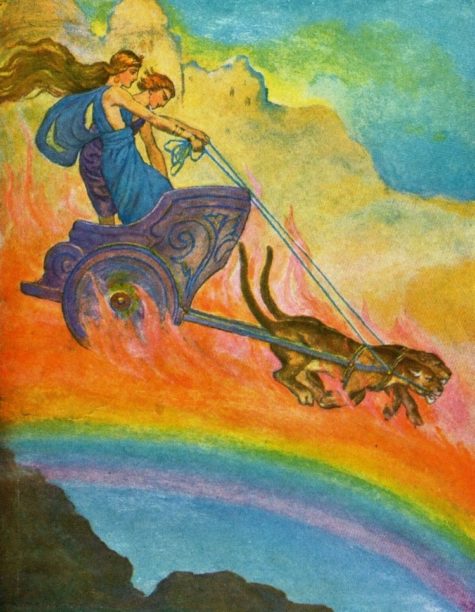
In the epic poem known as “The Kalevala” (composed by Elias L”nnrot and first published in 1835, though based on traditional folktales), you will find this curious anecdote…
It seems that a witch decided to one day invite herself into a house that happened to be filled with people. Upon entering this house the witch began to dance around while muttering bizarre incantations, much to the chagrin of all who were present.
All at once, the people found themselves transported onto a sleigh drawn by a giant magical cat. This mysterious cat pulled the sleigh at fantastic speeds until it finally came to “Pohjola”, a place where evil resides in everlasting night, located deep within the hinterlands of Finland.
Why? How come? What did those people ever do to the witch? How did a cat get mixed up in all this, anyhow? And why decide to ask such questions NOW?
Actually, the Finns believed that cats led the souls of the departed through the obstacles of hell onto the glories of heaven.
This motif of “cat-as-guide-to-the-beyond” is rather common. In Egypt there is the story of Bast the cat goddess bringing souls to the underworld. Babylonians believed that the souls of priests were whisked to paradise by the agency of a benevolent cat. So perhaps the Finnish folktale of the witch and the cat-sleigh isn’t so odd after all.

